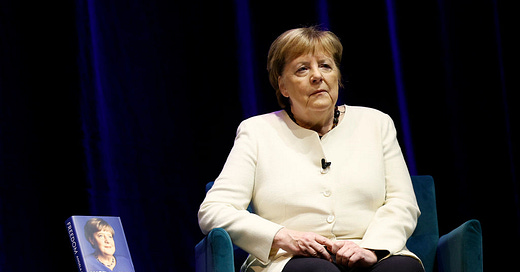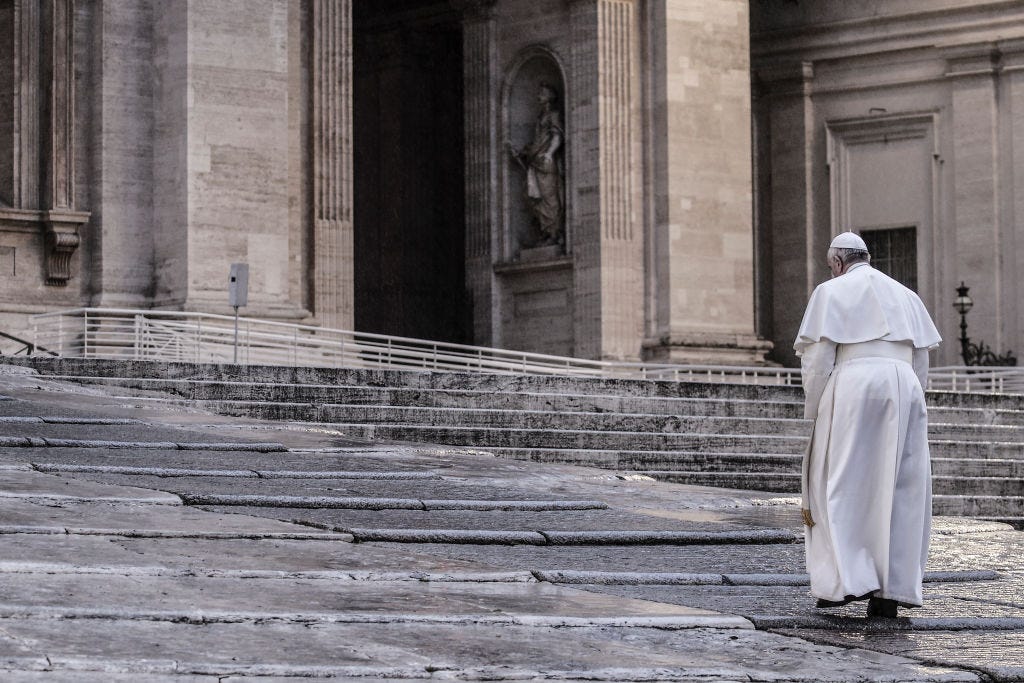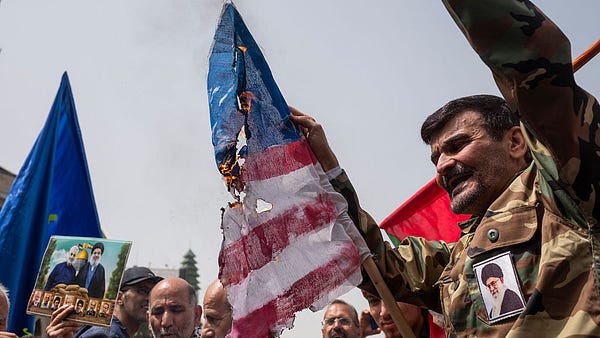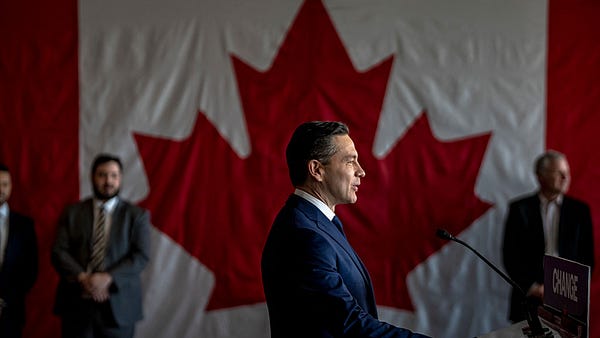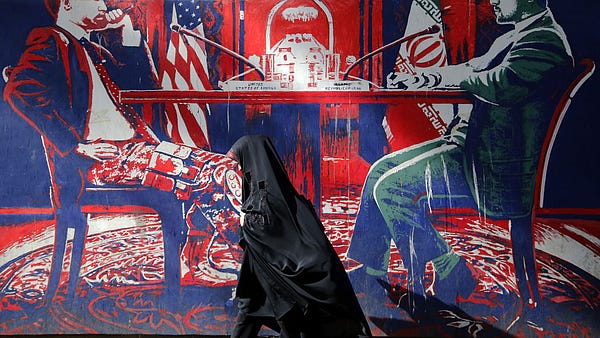
The Free Press

For a few months in the winter of 2016, German chancellor Angela Merkel was widely hailed as the last bulwark of Western democracy. Some went so far as to call her the true leader of the free world. After outgoing United States president Barack Obama had his final official meeting with Merkel, he reportedly told his team: “She’s all alone.”
In America, Donald Trump had just been elected the 45th president of the U.S. The United Kingdom had recently voted to leave the European Union. The leaders of France, Italy, Japan, and South Korea were looking weak. In Russia and China, dictators were gaining in confidence. Only Merkel was steadfastly standing up for liberal values (or so the story went).
Now, Merkel has published her memoir, pointedly called Freedom. It is a reminder of how remarkable her life story is. Raised as a pastor’s daughter in communist East Germany, she was 35 years old at the time of reunification. Underestimated by her friends and foes alike, she enjoyed a meteoric political rise after the fall of the Berlin Wall. By the time she was 51, she held the most powerful office in the country, one that she would not relinquish for the next 16 years.
I came away from reading Merkel’s memoir fully convinced that she is as decent as she is dogged. But when Merkel starts to discuss the key turning points of her time in office, a feeling of tragedy descends. Although she always strived to do the right thing, she ultimately got nearly everything wrong—a lesson she refuses to learn to this day. “If it helps someone to say, ‘It was Merkel’s fault,’ then let them do that,” she sullenly suggested at the official presentation of her book in Berlin. “I just don’t think that’s going to help the country.”
In the end, Freedom will most likely be remembered for showing how a well-meaning leader guided her country to the edge of the abyss. Since Merkel left office in December 2021, the shine has come off her legacy. The German model has stopped working. And in retrospect, it is painfully obvious that the major decisions Merkel took in office—including her soft line on Russia and the trade deals she struck with China—accelerated its demise.
Though Merkel led a conservative party, she unabashedly made her home in the political center, deferring to the apparent will of the majority at every step. In an age that favored loudmouths and demagogues, her style was consensual, even laconic; her ideology, if she had one, was to stay the course. When conflicts and civil wars in the Middle East brought hundreds of thousands of refugees to Germany’s doorstep, inspiring a powerful but short-lived wave of compassion, she refused to close the country’s borders, stating with characteristic simplicity: “We’ll make it work.”
And yet, Merkel’s refugee policy has, with the benefit of hindsight, come to seem neither particularly sensible nor particularly humane. It is a virtue to welcome genuine refugees. And the recent fall of Bashar al-Assad’s cruel regime in Syria serves as a reminder that many of the people fleeing his rule had good reason to fear for their lives.
But it is far from clear that enticing desperate people to hand their life savings to unscrupulous criminals in order to attempt a perilous voyage across the Mediterranean qualifies as true compassion—especially when those who aren’t willing or able to do the same are left to their own devices. That policy starts to look downright hypocritical given that Merkel touted her decision to keep open Germany’s borders even as she cut a costly deal with Recep Tayyip Erdoğan, the strongman leader of Turkey, effectively paying him to do the job of stopping the flow of desperate humans for her.
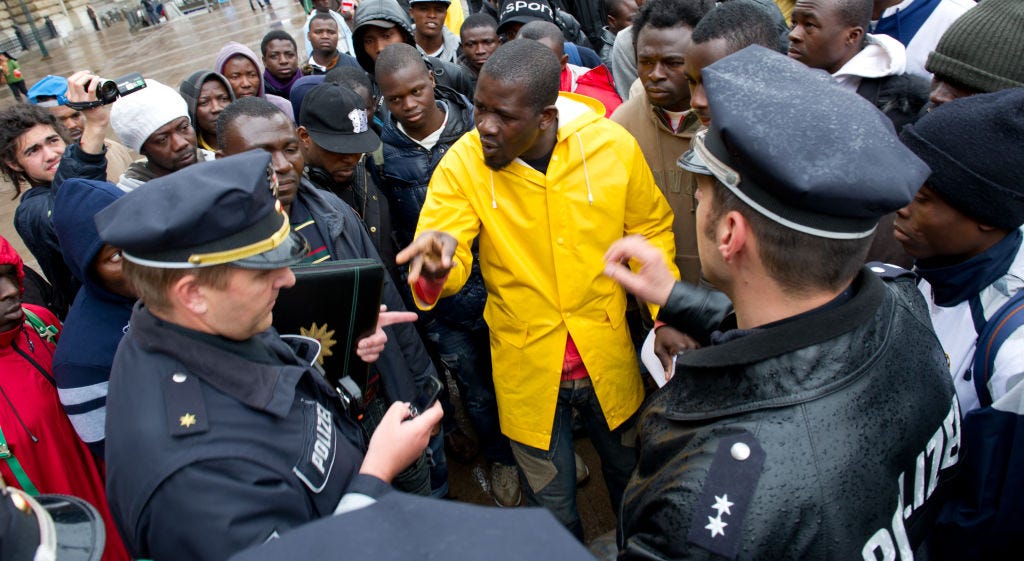
As it turned out, this dishonest approach to the refugee crisis also came at a heavy political cost. Even as she did what she could to stem the flow of refugees, Merkel persistently refused to acknowledge that she had changed course. In federal elections in the fall of 2017, the Alternative for Germany—a far-right party whose leaders have repeatedly invoked Nazi slogans and suggested that Germans need a “180-degree turn” in how they interpret their history—entered the Bundestag for the first time. Since then, in part because many refugees failed to integrate into the German labor market, and some turned to violent crime, the party has kept growing in popularity. According to current polls, the AfD will become the country’s second biggest political force in federal elections scheduled for February 2025.
Even for advocates of a humane approach to migration, Merkel’s decisions in the refugee crisis have turned out to be a Pyrrhic victory. In 2015, any criticism of her open-border policy placed you on the far right of European politics. But its consequences helped to make voters across the West much more fearful of uncontrolled immigration, and provided right-wing leaders from Giorgia Meloni in Italy to Donald Trump in the U.S. with resonant talking points. A decade later, even left-wing parties are desperate to emphasize that they’ll never allow a similar influx to repeat itself on their watch. Few would now defend the decision which, at the time, earned Merkel so much praise.
Germany’s crisis goes deeper than that. In the memorable formulation of Constanze Stelzenmüller, a senior fellow at the Brookings Institution, Germany has long “outsourced its security to the United States, its energy needs to Russia, and its export-led growth to China.” Merkel doubled down on all three of these bets. Since she left office, all three have gone belly up.
At dizzying speed, Germany has gone from economic powerhouse to the new “sick man of Europe.” Manufacturing in the country is down significantly. Its vaunted car industry has been particularly hard-hit. Volkswagen, for example, recently announced that it would shutter some of its German factories for the first time in the company’s history. It is no exaggeration to say that Germany now faces its deepest crisis since the end of World War II.
In the postwar era, West Germany found itself in a curious position. With the Iron Curtain running right through Berlin, it was a key frontier in the Cold War. But because of Germany’s recent history, its own allies did not trust the country with a robust army. This led the government in Bonn to rely on the United States for its defense needs. Over time, this reliance on Uncle Sam has turned into a reflexive habit of mind. To this day, many Germans look down on Americans as gun-obsessed cowboys while conveniently forgetting that it is these cowboys and their guns that have kept the country safe for the last 80 years.
Merkel never shared that instinctive anti-Americanism. But she failed to recognize that Germany’s long holiday from history had come to an end. Even after Trump came to office, demanding that European nations spend more on their defense and calling the purpose of NATO into doubt, she did not decisively increase the defense budget. By the time she left office in 2021, the German army was infamous for barely having any working planes. Today, Germany is no closer to being the guardian of Europe’s peace and stability than it was two decades ago.
In one respect, Germany has, over the last decades, succeeded in balancing between East and West: It has complemented its military dependence on the United States with energy dependence on Russia. The country’s leaders tend to justify their desire to cozy up to the Kremlin with their historical guilt over the number of Russian soldiers who died fighting the Nazis. (Somehow, they don’t appear to feel similar guilt toward Poles or Ukrainians who have suffered just as badly at German hands.) But the real reason is much simpler: They did not dare wean German industry off its addiction to cheap Russian gas.
To her credit, Merkel was far less naive about Russian president Vladimir Putin’s character or ambitions than her predecessors. Having grown up in a Communist police state, she understood better than most that the spirit of the KGB did not leave Putin after Putin left the KGB. (Among other tours of duty, he spent a number of years stationed in East Germany, giving directions to the Stasi.) During a bilateral meeting in the Kremlin in 2006, Putin—who knew that Merkel was deathly afraid of dogs since being bitten by one a decade earlier—allowed his Labrador to greet and sniff Merkel at length. In her memoir, Merkel implies that this revealed a sadistic streak: “On my reading of Putin’s face, he seemed to take pleasure in the situation. Did he simply want to see how a person reacts when they find themselves in distress?”
But that only makes it all the more baffling that Merkel pursued policies which deepened Germany’s dependence on Russian gas. She ordered the shutdown of Germany’s nuclear reactors, supposedly for environmentalist reasons, making the country more addicted to imported fossil fuels. Well after the Kremlin had occupied Georgian territory in 2008 and Ukrainian territory in 2014, Merkel persisted in supporting Nord Stream 2, a pipeline that would pump gas directly from Russia to Germany. Costs for Germany’s energy-intensive industrial sector began to rise during her time in office, only to spike in 2022 after Putin launched his full-scale invasion of Ukraine—threatening the viability of the country’s manufacturing businesses and pushing it into a recession.
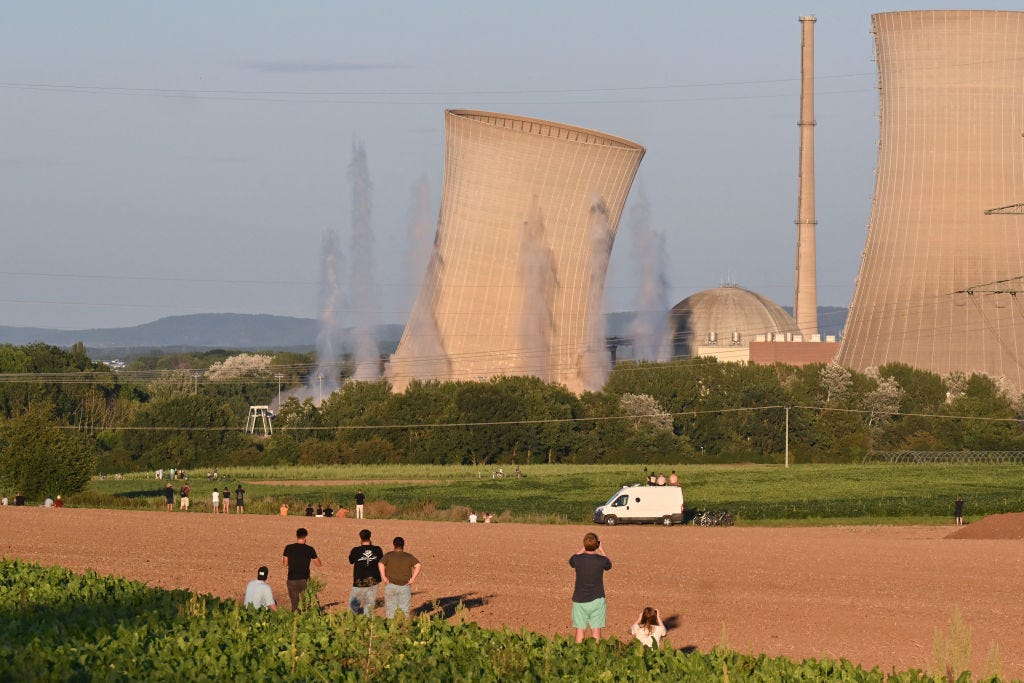
Germans have long prided themselves in being Exportweltmeister, the world’s leading exporter. This required German companies to find markets for their cars and other high-value manufactured goods. The most alluring of these markets has, for the past decades, been China. And so, a succession of German politicians would make enthusiastic pilgrimages to Beijing, with the more intrepid among them muttering a few high-minded words about human rights before striking trade deals designed to deepen bilateral ties.
This is another area in which Merkel lacked either the foresight or the courage to change course. Even as Xi Jinping tightened his grip on power, Merkel continued to pay lip service to the convenient idea that trade with Western countries would serve to soften Communist rule. As late as 2020, she strongly advocated for an investment deal between Brussels and Beijing. While she claims that her childhood indoctrination in Marxism-Leninism helped her understand Xi’s authoritarian mindset, she ultimately insists that her penchant for realpolitik rightly took precedence: “There were tangible German interests,” she insists in Freedom. “Our economic cooperation [with China] guaranteed German jobs.”
Under Merkel, major German corporations such as Daimler and Volkswagen came to be ever more dependent on Chinese buyers. But far from helping to ensure German prosperity, as Merkel still seems to believe, that dependence gradually turned into an existential threat. As German manufacturers fell behind on the development of electric cars, Chinese start-ups leapfrogged their technology. Today, China exports more cars than it imports, posing a double danger to the financial viability of the German economy’s most important sector.
The postwar history of Germany has been a surprising success story. When the Federal Republic was founded four years after the end of World War II, the prospects for a successful democracy seemed extremely uncertain; the country was already divided between East and West; and much of it lay in ruins.
As it marks its 75th anniversary, the Federal Republic can take pride in remarkable accomplishments. Germany has fully embraced democracy and firmly anchored itself in the Western alliance. It has learned the lessons of the past to such an extent that its neighbors now fear its weakness more than its strength. And it has for many decades been the most successful economy on the European continent.
But Germany’s ability to sustain that success is now in doubt. The companies that drove the country’s prosperity since the 1950s face the threat of retrenchment or even bankruptcy. The hapless coalition government that succeeded Merkel recently broke apart in acrimony. Extremists are rising in German politics. Putin is threatening Europe’s political order. Even Berlin’s ability to outsource its security needs to Washington may be coming to an end.
All of this calls for a radical reimagining of Germany’s model. To ensure that the country is able to extend its remarkable run of success, its leaders need to rethink its economic, cultural, and geopolitical strategy. But despite a lot of hand-wringing about the state of the country, virtually no one in Berlin seems to have taken the measure of the moment.
That is yet another respect in which Merkel’s failings are representative of the failings of her country. In her memoir, she barely acknowledges any personal or political shortcomings. In her public appearances since its release, she has appeared piqued that she should need to field impertinent questions about her mistakes. Whether it comes to her softness on the Kremlin, her failure to modernize Germany’s industry, or her decision to keep open the German border in the summer of 2015, she appears incapable of understanding the high price exacted by her decisions.
“To me,” Merkel writes in the epilogue to her memoir, “freedom means continuing to learn even after I have left politics.” And yet, Merkel still seems to hold on to the illusions that led her astray in the first place. When trying to explain away her failure to take on Russia in the memoir, she bafflingly suggests that “nobody knows whether Vladimir Putin’s attack on Ukraine on February 24 2022 might have been avoided if the pandemic hadn’t happened and there would have been in-person rather than virtual meetings.”
Nor has she understood why so many of her compatriots remain angry at her blithe insistence that Germany would easily master the influx of refugees. “If somebody had told me at the time that some people would use ‘we’ll make it work,’ those four banal words, against me for weeks, months, or years,” she writes in Freedom, “I would have looked at them incredulously and asked: ‘Excuse me?’ ”
Some believe that it was Barack Obama who, in that final meeting back in November of 2016, persuaded Merkel to run for a fourth term so that somebody could stand up to Trump on the international stage. Merkel ran and won, staying in office until after Trump had reluctantly vacated the White House. For a few years, it looked as though she had outlasted him.
Now, even that apparent certitude is gone. For as Merkel travels the world stubbornly defending her record, Trump is triumphantly preparing himself for a new term in office.
Yascha Mounk writes a weekly column on Substack. He is the author, most recently, of The Identity Trap: A Story of Ideas and Power in Our Time.


